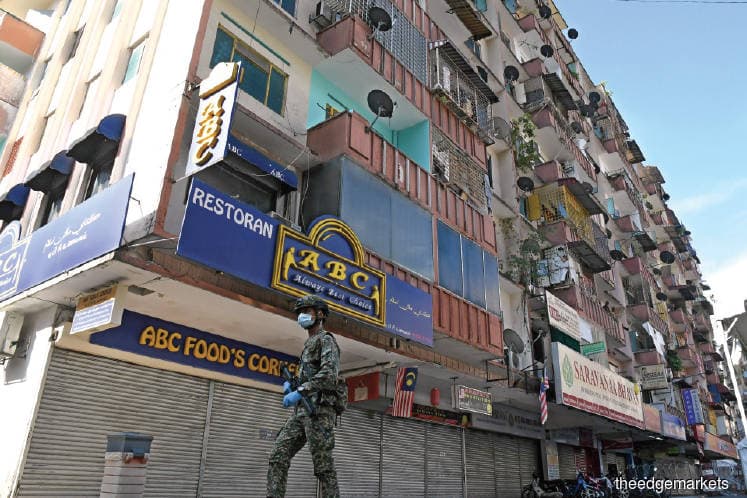
This article first appeared in The Edge Malaysia Weekly on April 20, 2020 - April 26, 2020
IN a previous article published in The Edge (Issue 1311, March 23), I wrote briefly about my Facebook posts which disappeared and then reappeared. The article was about how important it was for the government to coordinate its actions before announcing a directive on the Movement Control Order (MCO).
The subject involved two news items in The Star that caught my eye.
The first was on Singaporean employers coming to the rescue of their Malaysian employees, days before our government was to impose the MCO on March 18.
The MCO meant thousands of Malaysians who commute daily from Johor Baru to work in Singapore would be affected. They had to either stay put in Johor, which meant no work and no income, or continue working, which meant putting up in Singapore — an unaffordable option.
Their cries of despair went unheeded. It was then that their employers in Singapore stepped in to offer them accommodation in the island state. That enabled the workers to continue working.
I saw that as good news and shared the story on my Facebook page — commenting that when the Malaysian government decided to impose the travel ban, it did not provide solutions for our workers. So, I thanked God that the Singaporean employers had come up with a much-needed solution.
The second story was on Singapore’s ministers taking pay cuts while their frontliners in the war against Covid-19 would be given bonuses. I shared that story too on Facebook, asking whether such gestures could be carried out in Malaysia.
Moments after each post, I received an email from Facebook saying that my post “goes against our community standards”. Thus, the posts were blocked from public viewing.
I was baffled because both my posts carried harmless comments. So, how come they were deemed to have gone against Facebook’s community standards and were regarded as spam?
I remember reading articles by people familiar with social media matters, and they claimed that Facebook sometimes overdid things in its effort to tackle spamming and other abuses on these media platforms. I do not know if this was the case with my two posts.
To be fair to Facebook, when informing me about the status of my posts, it asked if I agreed or not with the action it had taken. Naturally, my reply was a big no.
Two days later, Facebook sent another email informing me that “your post is back on Facebook. We’re sorry we got this wrong. We reviewed your post again and it does follow our community standards”.
That’s all well and good. When I told my friends about this, some suggested it could be a case of people being not too happy with my remarks — possibly deeming them as pro-Singapore or unflattering to the Malaysian government — and lodging reports with Facebook.
Having no evidence to support this belief, I will leave it at that. It could very well be hearsay, notwithstanding the fact that people can be extra sensitive, especially during these depressing times. Even ministers.
Senior Minister (Security Cluster) Datuk Seri Ismail Sabri Yaakob recently launched a verbal attack on a journalist after he was reported as saying that migrant workers in Selangor Mansion and Malayan Mansion in Kuala Lumpur that had been sealed off must buy their own food and that it was not the responsibility of Putrajaya to provide them with meals.
Ismail denied saying that the migrant workers would not be given any food even as he insisted that their respective embassies must take care of their citizens.
Having watched the video clip of the report, I found it to be fair, with the minister accorded the right sound bites. Even if Ismail had issues with the report, a strongly worded denial should have sufficed. To accuse the reporter of having bad intentions is out of line.
But the story did not end with that accusation. Not too long after, Ismail warned that stern action would be taken against news outfits that published “confusing and inaccurate” articles regarding government statements.
He said the police and the Ministry of Communications and Multimedia are monitoring such offences, “especially those involving official statements from the government”.
The government, he said, views such actions seriously because “news which is false, news which is inaccurate, can confuse the public, hence cause the people to worry”.
As a member of the media, I am worried. For one, the government must know that inaccurate and even so-called misleading news is not the same as fake news, which is circulating freely on social media.
The MCO is like a state of emergency where the government needs to curb fake news. Nobody is disputing that. At times like this, the media is also expected to publish inspiring and positive stories. However, it is a big worry if criticism against ministers and the government is classified as fake news.
Also, it is a fact that politicians will always claim that they were misquoted whenever things are not to their liking.
True there were instances when they were indeed misquoted and their remarks taken out of context. But there were also times when the “I was misquoted” line was used as an escape tactic when ministers had said things they shouldn’t have.
Please do not curb responsible journalism by controlling press freedom.
Mohsin Abdullah is a contributing editor at The Edge. He has covered politics for more than four decades.
Save by subscribing to us for your print and/or digital copy.
P/S: The Edge is also available on Apple's AppStore and Androids' Google Play.